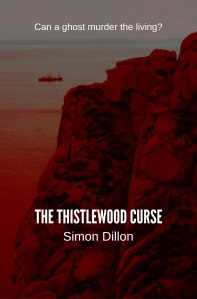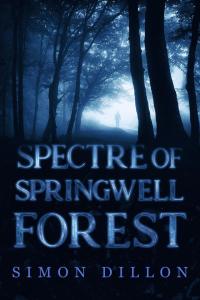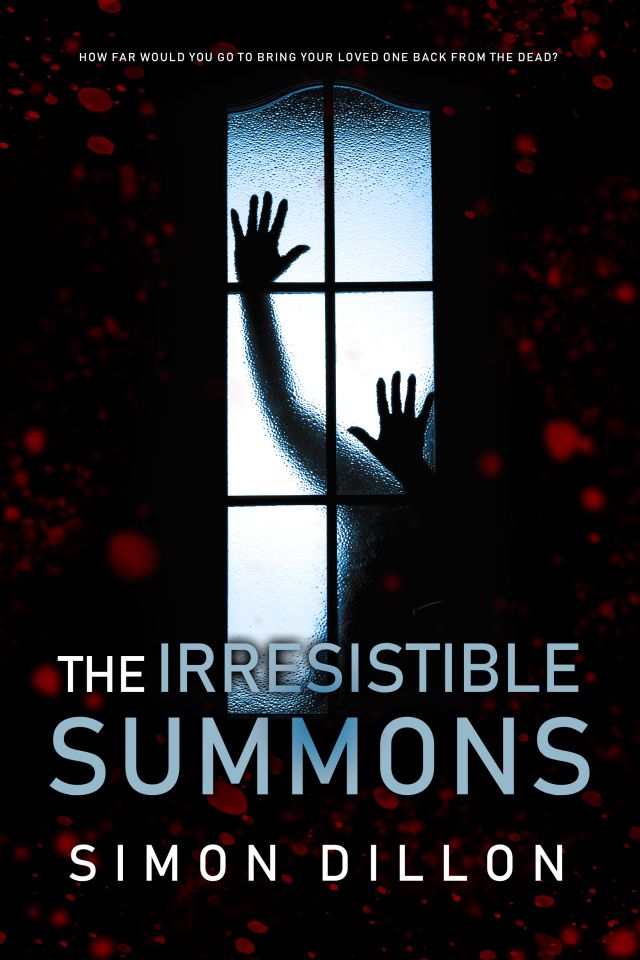Horror and Thrillers



Death Nest: A widower fears his young son is cursed when he shows disturbing behaviour akin to that of the widower’s younger brother, before he vanished twenty years previously.
The Irresistible Summons: A television producer who debunks the supernatural encounters a genuine haunting in a London office block.
The Birds Began to Sing: An aspiring novelist enters a mysterious writing competition at a sinister mansion.
Phantom Audition: The grieving widow of a famous actor begins to suspect a supernatural hand at work in his apparent suicide, linked to his final acting role.
Spectre of Springwell Forest: A mother comes to believe her young daughter is cursed, after discovering a mysterious painting in her attic containing a gradually revealed figure, which only she can see.
The Thistlewood Curse: A detective and her paranormal consultant suspect supernaturally assisted murder after the sudden heart attack of a Lord’s son on Lundy Island.
Children’s Adventures



Uncle Flynn: A timid boy gradually overcomes fear and mollycoddling as he searches for hidden treasure on Dartmoor with his enigmatic uncle.
Dr Gribbles and the Beast of Blackthorn Lodge: A monster, a mad scientist, and a haunted house… That’s just the beginning for a boy who finds himself caught between spy factions near the end of the Cold War.
Echo and the White Howl: A exiled young wolf seeks revenge after his Alpha father is murdered by a pack rival.
The George Hughes Trilogy



The Martian Inheritance, The Titan War, and The Neptune Conspiracy: Teenager George Hughes unexpectedly inherits the planet Mars. He finds himself the target of covert assassins, hostile aliens, and even darker forces. But he also comes under the protection of a mysterious secret agent, and finds friends in unlikely places.
Other Novels



Children of the Folded Valley: A man looks back on his past when he grew up in a mysterious cult cut off from the rest of the world.
Peaceful Quiet Lives: Forbidden lovers fall foul of laws in both nations that emerged following the Second American Civil War.
Love vs Honour: Teenage lovers pretend to convert to Islam and Christianity to appease each respective set of parents.
All titles are available from Amazon here (in the UK) and here (in the US). Some of the above titles are also available from Smashwords.
If you enjoy my novels and short stories, please consider supporting my writing on Patreon or Ko-fi. Thank you.









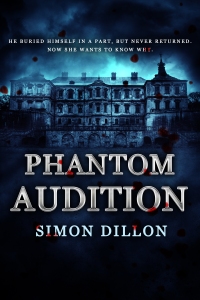 Genre fiction writers are often accused of writing “formulaic” stories. It may surprise you to know I plead guilty as charged. My children’s adventure novels contain many well-worn tropes. My gothic mystery/horror thrillers likewise. Why? Because the reader expects them, and would be disappointed if I didn’t deliver.
Genre fiction writers are often accused of writing “formulaic” stories. It may surprise you to know I plead guilty as charged. My children’s adventure novels contain many well-worn tropes. My gothic mystery/horror thrillers likewise. Why? Because the reader expects them, and would be disappointed if I didn’t deliver. It is vital, especially in genre fiction, to give the reader what they want but not the way they expect it. Genre writers understand this. Agatha Christie’s novels and crime fiction in general is hugely formulaic, but also fiendishly difficult to write well. Like most genre fiction, they are an easy target for literary snobs.
It is vital, especially in genre fiction, to give the reader what they want but not the way they expect it. Genre writers understand this. Agatha Christie’s novels and crime fiction in general is hugely formulaic, but also fiendishly difficult to write well. Like most genre fiction, they are an easy target for literary snobs.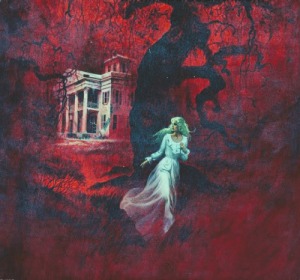 Imperilled heroine – All these books feature a tenacious, insatiably curious, likeable but flawed heroine, who is dealing with some kind of trauma either in the recent or distant past.
Imperilled heroine – All these books feature a tenacious, insatiably curious, likeable but flawed heroine, who is dealing with some kind of trauma either in the recent or distant past. Supernatural elements – Ghosts, demons, witchcraft, astral projection… These are often (but not always) explored.
Supernatural elements – Ghosts, demons, witchcraft, astral projection… These are often (but not always) explored.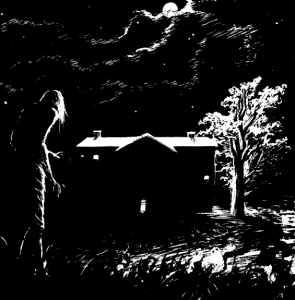 Villain/antagonist with similar goals to the protagonist – I am fascinated by stories where protagonist and antagonist essentially want the same thing. Of my gothic mysteries, The Irresistible Summons explores this with particular potency.
Villain/antagonist with similar goals to the protagonist – I am fascinated by stories where protagonist and antagonist essentially want the same thing. Of my gothic mysteries, The Irresistible Summons explores this with particular potency.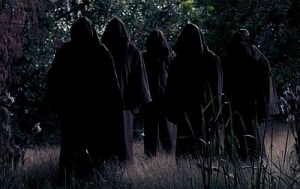 Big twist ending – This needs no explanation. I love a good twist ending, but only when it comes off as both inevitable and unexpected. It’s no good pulling out the rug from under the reader without laying the necessary groundwork, or it won’t feel satisfying. I don’t always do this (I’ve always maintained there’s a
Big twist ending – This needs no explanation. I love a good twist ending, but only when it comes off as both inevitable and unexpected. It’s no good pulling out the rug from under the reader without laying the necessary groundwork, or it won’t feel satisfying. I don’t always do this (I’ve always maintained there’s a 
 I’m currently reading A Book of Bones by John Connolly (part of the Charlie Parker series). One element that struck me as quite effective was the use of stories within the main story. My favourite section so far involved rival apprentice archaeologists in the 1920s under the supervision of a more seasoned archaeologist; with the latter narrating a horrifying incident on the Hexham Moors. The tone and style of this section is radically different to other parts of the novel, sounding more like an MR James short story. I really liked this little digression.
I’m currently reading A Book of Bones by John Connolly (part of the Charlie Parker series). One element that struck me as quite effective was the use of stories within the main story. My favourite section so far involved rival apprentice archaeologists in the 1920s under the supervision of a more seasoned archaeologist; with the latter narrating a horrifying incident on the Hexham Moors. The tone and style of this section is radically different to other parts of the novel, sounding more like an MR James short story. I really liked this little digression.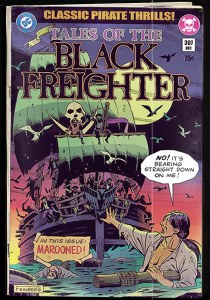 More recent examples include the astonishing Tales of the Black Freighter within Alan Moore’s graphic novel Watchmen (revered as the Citizen Kane of graphic novels by comic book enthusiasts). In this context, the Black Freighter story is a metaphor for the journey into madness taken by the antagonist.
More recent examples include the astonishing Tales of the Black Freighter within Alan Moore’s graphic novel Watchmen (revered as the Citizen Kane of graphic novels by comic book enthusiasts). In this context, the Black Freighter story is a metaphor for the journey into madness taken by the antagonist.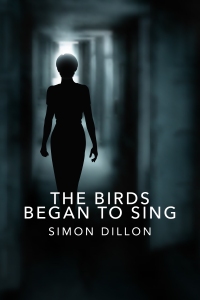 In my own novels, I have occasionally employed this narrative tool. Most notably, my gothic mystery thriller The Birds Began to Sing concerns an aspiring author who finds herself enrolled in a mysterious competition at a sinister mansion, to write the ending for an unpublished manuscript penned by a famous, now deceased thriller novelist. This unfinished novel has a horrifying secret from the real world buried within it, which eventually comes to light as the story progresses. (You can check out The Birds Began to Sing
In my own novels, I have occasionally employed this narrative tool. Most notably, my gothic mystery thriller The Birds Began to Sing concerns an aspiring author who finds herself enrolled in a mysterious competition at a sinister mansion, to write the ending for an unpublished manuscript penned by a famous, now deceased thriller novelist. This unfinished novel has a horrifying secret from the real world buried within it, which eventually comes to light as the story progresses. (You can check out The Birds Began to Sing 